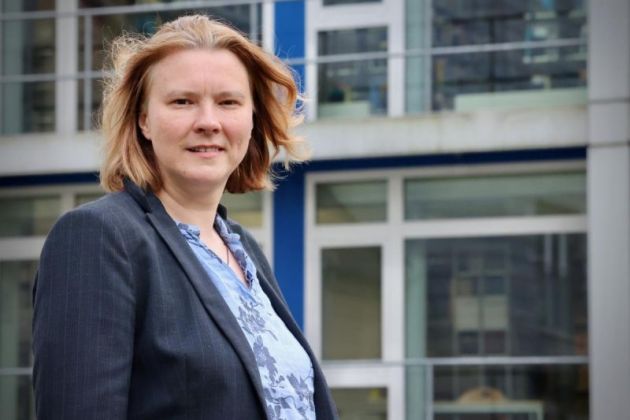Christians in Belarus are ready 'to sacrifice' in the name of justice

In Belarus when Christians take responsibility to stand up for justice as individuals as their churches remain silent, they take on consequences for their own lives, says the Orthodox moderator of an ecumenical group.
Natallia Vasilevich, Orthodox theologian and human rights lawyer, and moderator of the ecumenical group Christian Vision in Belarus told the World Council of Churches.
She said Christians in Belarus, Russia's ally in its war on Ukraine, do not fear to be messengers of justice and peace
Vasilevich prefers to speak of the role of Christians rather than the role of churches in Belarusian society.
"Many Christians are more motivated, and are taking responsibility—and also take consequences for their lives—when they join the democratic movement...the movement for fair elections, for human rights, for justice and peace," said Vasilevich in an interview.
She prefers to speak about the role of Christians because, in the current Belarusian context, she said institutional churches often fail to stand up for human rights while individual Christians at the grassroots are bringing a prophetic voice with seeds of hope.
Vasilevich serves as moderator of the ecumenical group Christian Vision, which unites Belarusian theologians, clerics and active laity of Orthodox, Roman Catholic, Greek Catholic, Anglican and Evangelical churches.
The group promotes respect to human dignity and rights, rule of law, justice, peace, and Christian witness in social and political life.
Given the high level of oppression by the Belarusian government, even so-called small voices make a big impact, Vasilevich.
"People can go to prison just for saying a few words," she said, adding that Christians engaged in the human rights movement in Belarus "bear a lot of burden on themselves and they are ready to sacrifice."
From a small picture on Facebook to laying flowers at a rail station, from displaying a sticker on a vehicle to simply gathering in prayer—these are all manifestations of the voices of Christian human rights advocates.
"That's why they are probably not always visible as Christians but I think it's very important to give them this vocality because the small signs should be promoted," said Vasilevich.
She shines a light on the example of Orthodox priest Mikhail Marugo from Minsk who, after standing with flowers at a railway station in one of days when the Russia's war with Ukraine started, was imprisoned for 13 days.
IMPRISONED FOR FACEBOOK PHOTOS
Vasilevich lifts up priests who were imprisoned for posting profile pictures on Facebook with the Ukrainian flag, such as Catholic priest Aliaksandr Baran.
She lifts up Greek-Catholic priest Vasil Yahorau who had a sticker on his car that read "Forgive us, Ukraine"—and was imprisoned for it.
"In this shrunken public space, it's very difficult to witness for churches," said Vasilevich.
"Orthodox women, mothers came to pray together, to the Mother of God before her Minsk icon in the Orthodox cathedral, and while entering the cathedral they were filmed. Four women, after the service, were taken to the police station and asked why they were praying to the Mother of God against the war."
Even if the message of institutional churches is unable to be strong, the message of the individual Christians is shining, insists Vasilevich.
"It shows Christians have this moral motivation inspired by the gospel," she said. "They do not fear. They try to be messengers of justice and peace in Belarusian society."
